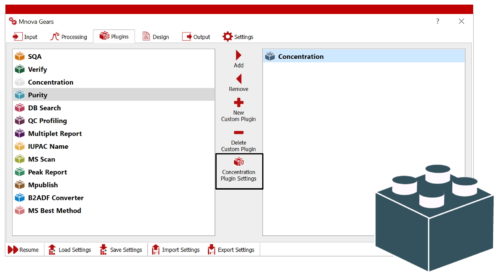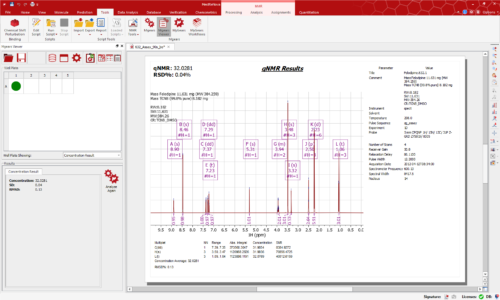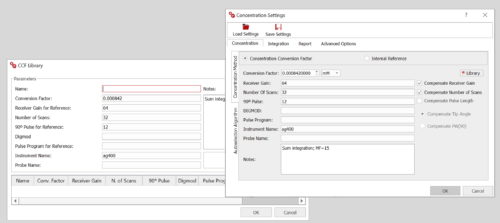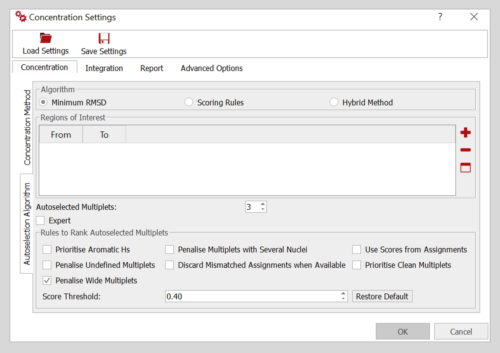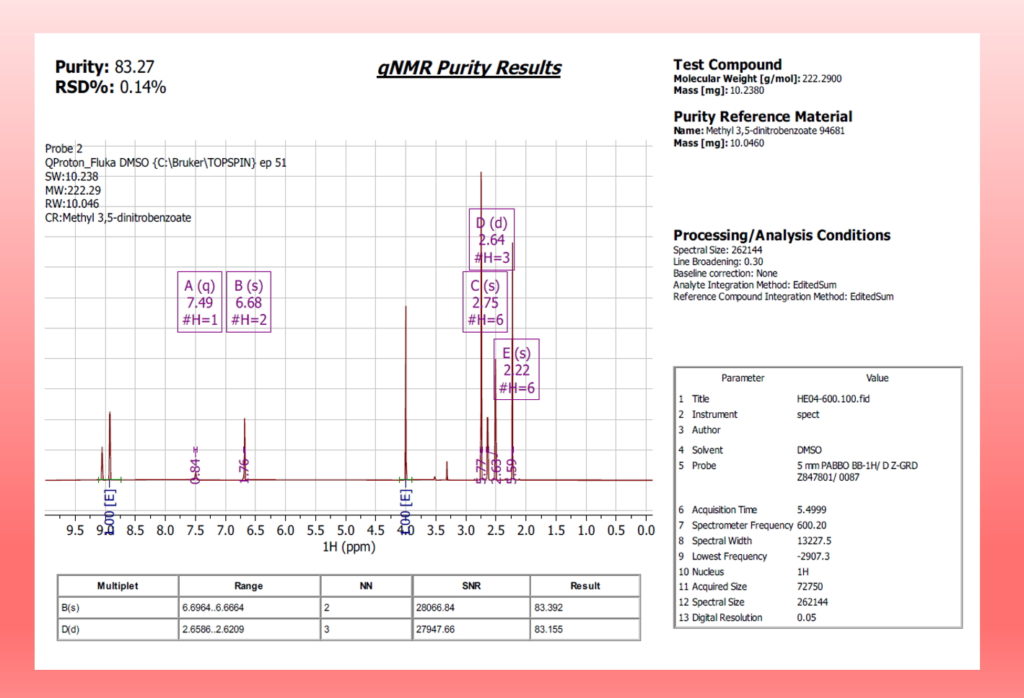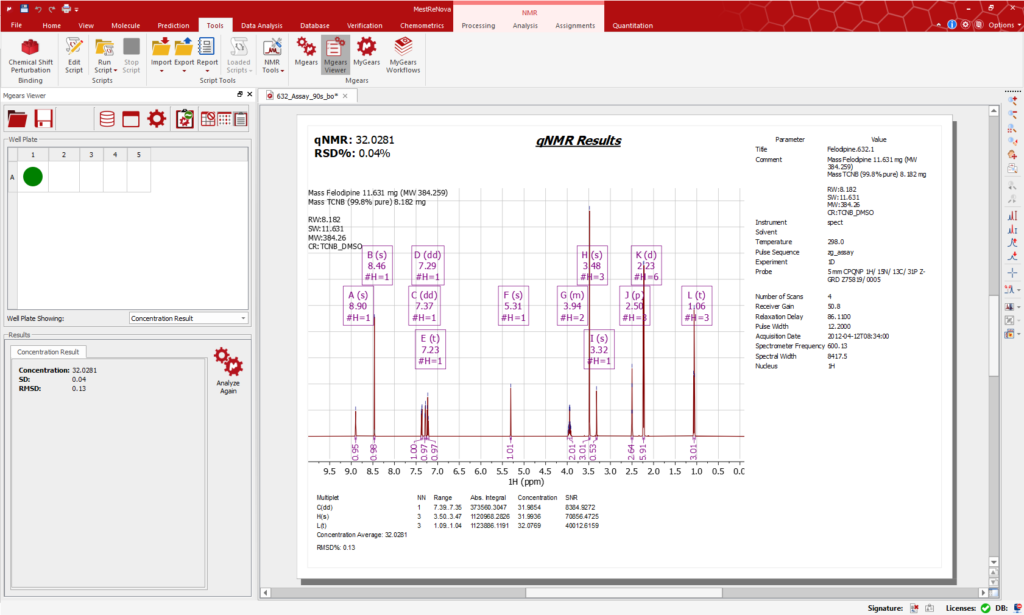
Concentration Analysis by NMR in Automation
The Mnova Gears Concentration brick allows an automated and controlled extraction of compound concentration from batch NMR data in libraries or at the point of data acquisition.
It turns peak integrals into concentrations based on an internal or external reference and generates an automatic report with all the results.
Help & Resources
Gears Concentration
Features
Make the most out of this very simple automation workflow:
- Process and analyze the data
- Select the peaks most suitable for quantitation
- Integrate those peaks as well as the reference ones or use external reference values
- Turn integrals into concentrations from libraries or at the point of data acquisition
- It includes multiplet autoselection algorithms and a set of rules that you can customize as needed.
- Choose the algorithm and the ranking rules to take into account when ranking multiplets:
-
- Multiplets with smallest RMSD for the concentration average
- Multiplets ranked using autoselection rules
- Multiplets ranked using autoselection rules then by the smallest RMSD
Academic, Government & Industrial
Markets
Who should be using Mnova Gears Concentration?
- Pharmaceutical, chemical industries, research, and QC environments
- Process chemistry
- Pharmaceutical compound libraries
- Suitable for individual users, research groups as well as large institutions and companies
Success Stories


